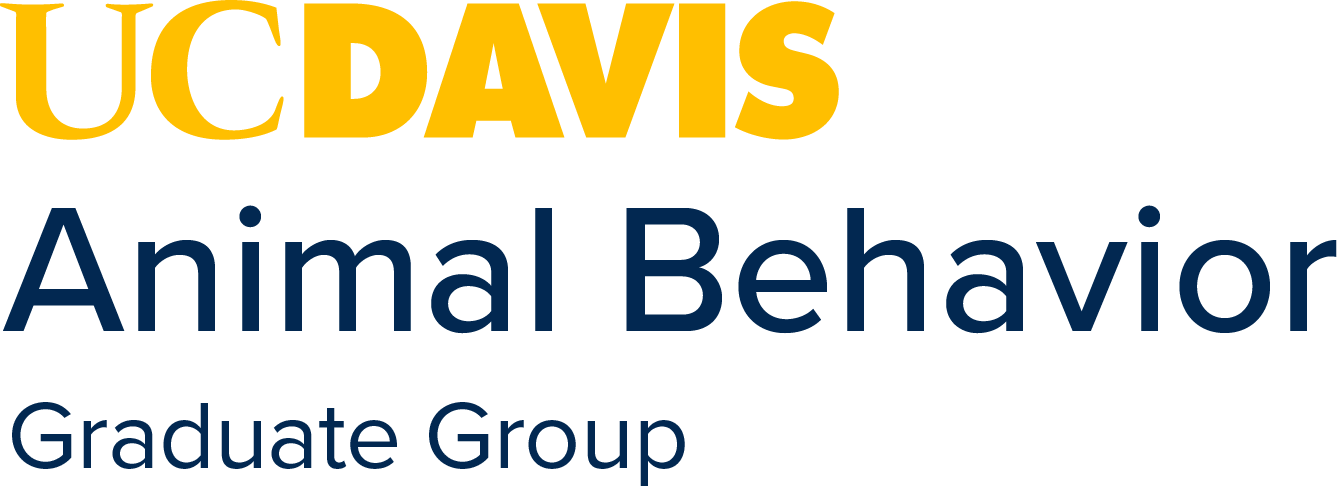Course Requirements
When applying to the program, students must have acquired a Bachelor's or Master's degree in a discipline relevant to the biology of behavior. Additionally the equivalent of at least one course from each of the following subject areas must be completed.
Prerequisite Coursework:
- EVE 101 or ESP 100: Introduction to Evolution or General Ecology (4 unit)
- BIS 101: Genes & Gene Expression (4 units)
- STA 101 or PSC 101A or B: Advanced Applied Statistics for the Biological Sciences or Statistical Analysis of Psychological Data (4 units)
- EVE 100: Introduction to Evolution (4 units)
- NPB 102: Animal Behavior (3 units)
- NPB 101: Systemic Physiology (5 units)
It is common that students admitted to the Ph.D. program may have some deficiencies in the areas listed above. Students will work with their Course Guidance/Advising team to identify what courses still need to be completed and develop a plan within the first 2 years to ensure these requirements are met.
Once enrolled, all students must take certain core courses and at least two elective courses. The aim of the core curriculum is to introduce students to the breadth of approaches to animal behavior, and to encourage the interdisciplinary thinking that distinguishes our program. These courses are required of all students in the program:
Core courses: 20 units
- ANB 201: Scientific Approaches to Animal Behavior (3 units)
Course Description: Philosophical issues, goals, strategies and tools in field and laboratory research.
Prerequisite(s): Consent of instructor.
- ANB/PSC 218A: Fundamentals of Animal Behavior (5 units)
Course Description: Survey of the phenomena and theory of animal behavior from the perspectives of multiple biological disciplines, including evolution, ecology, psychology, genetics, neurobiology, endocrinology, and animal science.
Prerequisite(s): Consent of instructor; upper division undergraduate introduction to the biology of behavior, such as PSC 101, PSC 122, PSC 123, NPB 102, NPB 150, NPB 152, WFC 141, ENT 104, or ANS 105.
- ANB/PSC 218B: Fundamentals of Animal Behavior (5 units)
Course Description: Survey of the phenomena and theory of animal behavior from the perspectives of multiple biological disciplines, including evolution, ecology, psychology, genetics, neurobiology, endocrinology, and animal science.
Prerequisite(s): ANB 218A or PSC 218A; or ECL 218A; consent of instructor.
- A Course in advanced statistical analysis (e.g. PSC 204A; B, or D; STA 205, 106, 108, 138; PLS 205, 206, 207, or EVE 225 ): 4 units
- Please reference the UC Davis General Catalog for descriptions about the listed courses.
Seminar courses (ANB 290): 3 units
This course is tied to our seminar series and covers various contemporary animal behavior topics. Students will have an opportunity to hear from current graduate students, postdoctoral students, as well as local, non-local, and international speakers within the animal behavior community.
Our Fall 2025 Seminar Schedule will be posted in September. Please check back here for a complete quarter schedule.
Elective courses: 6 units
Students must also take two elective courses (of at least 3 units each) in their area of interest, chosen in consultation with and approved by their Course Guidance Committee. The graduate advisors can provide lists of recommended courses focusing on the behavior and conservation of wild animals, animal management and welfare, ethology and evolutionary bases of animal behavior, and physiological bases of animal behavior.
The following courses are not required, but are strongly recommended:
- A course in teaching science (e.g. BIS 310, PSC 390A, B)
- At least one additional course in statistics or modeling (e.g. PBG 231, PSC 120)
Students are also strongly urged to obtain at least 30 contact hours of teaching in courses directly related to the subject of animal behavior. This may include assisting with laboratory or field study courses as well as giving lectures to undergraduates.
Click here for UCD Courses/Catalog
Summary:
There are 26 units required. At least 16 of the 26 units completed for the degree must be taken in graded courses offered at the 200 course level. (Courses in the 300 and 400 series may be accepted if they have been approved for graduate credit.) Graduate students must register for a minimum 12 units per quarter to maintain full-time status.
